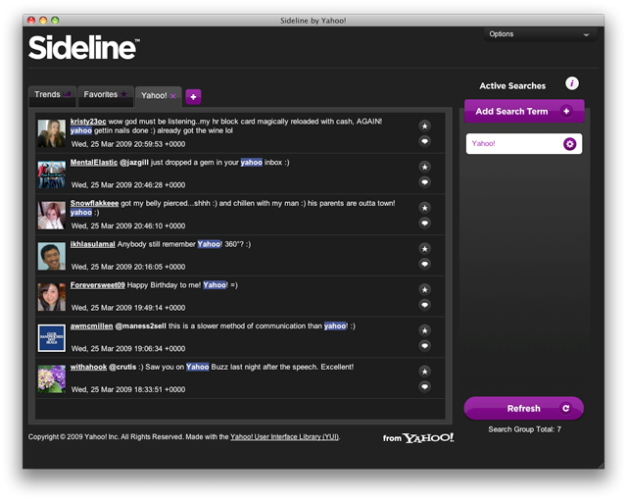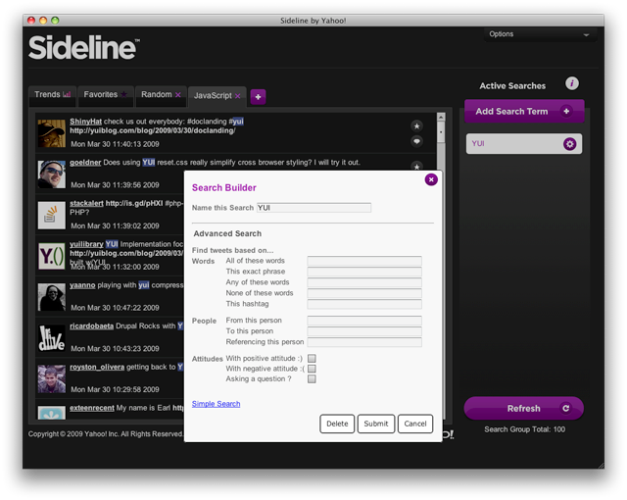 Yahoo has launched an Adobe AIR-powered desktop application called Sideline yesterday, once again validating the power of Twitter for real-time search. After taking it for a spin, I have to say it looks and feels really nice, but other than that there’s no real incentive for me to keep using it on a regular basis.
Yahoo has launched an Adobe AIR-powered desktop application called Sideline yesterday, once again validating the power of Twitter for real-time search. After taking it for a spin, I have to say it looks and feels really nice, but other than that there’s no real incentive for me to keep using it on a regular basis.
So what does it do?
Sideline is a straight-forward Twitter monitoring tool, giving you the opportunity to stay on top of the latest trends on the microsharing service and/or keywords you feed into the application. It has an auto-refresh feature (which you can tweak to have the search results reload between 1 minute and 1 hour), a notification system that alerts you of new keyword mentions in an overlay that appears whatever you’re doing and the ability to only look for favorited tweets containing the keywords you’re tracking.
So far, nothing special, but what’s nice about Sideline is that it enables you to create so-called Search Groups which pull together multiple keywords for tracking purposes. This basically allows anyone to create e.g. a TechCrunch group and track different keywords and phrases like ‘techcrunch’, ‘crunchgear’, ‘michael arrington’, etc. Also really nice is the advanced search function, which lets you filter results down extensively, for instance by person, hashtag, ‘asking a question’, by negative or positive connotation (determined with smilies), and so on. Update: this is actually a layer over Twitter’s advanced search functionality, as a commentor points out.


It’s slick and useful, but nothing major any way you look at it, especially since it’s not a functional client that lets you actually send direct or public Twitter messages. I wonder how many people will effectively keep using it after trying it out, but I doubt it will be many.
The desktop application comes from Yahoo’s User Interface (YUI) group, who explained in detail what inspired them to build it and how they did it. Sideline was developed with the Yahoo! User Interface Library (YUI) and HTML/JS/CSS. The code is open source under the terms of the BSD license and hosted on GitHub.